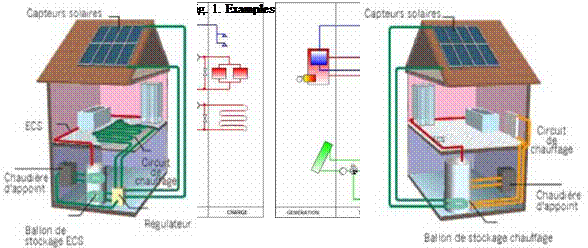Как выбрать гостиницу для кошек
14 декабря, 2021
1 CEA, LITEN, INES 50 avenue du Lac Leman, 73377 Le Bourget du Lac, France.
2 SERC, Hogskolan Dalarna, 78188, Borlange, Sweden.
3 ITW, University of Stuttgart, Keplerstrasse, 70174, Stuttgart, Germany.
4 ADEME, 500 route des Lucioles, 06560, Sophia Antipolis, France.
5 AEE INTEC, Feldgasse 19, 8200 Gleisdorf, Austria.
6 INES Education, 50 avenue du Lac Leman, 73375Le Bourget du Lac, France.
7 Plan Energi, Jyllandsgade 1, 9520 Skoerping, Denmark.
* Corresponding Author, mickael. albaric@cea. fr
Solar combisystems (SCS) are solar heating installations providing space heating as well as domestic hot water in buildings. Within a global solar thermal energy strategy, SCS are a key element to decrease the fossil energy demand for heating in existing and new buildings. This project will help to reduce the use of fossil fuels and hence also the emission of greenhouse gases. During 3 years (December 2007 — December 2010), experts from research, testing institutes and industry will work in the aim to encourage an accelerated deployment of SCS market — hence a higher share of heat produced by solar energy — and promote an improved quality of the installed systems.
Keywords: Solar CombiSystems, Performance, Standardisation, Promotion
Solar combisystems are solar heating installations providing space heating as well as domestic hot water in buildings. Within a global solar thermal energy strategy, SCS are key elements to decrease the fossil energy demand for heating needs in existing and new buildings. From that point of view, their further market deployment will contribute to achieve the objectives of the White Paper on Renewable Energy Sources, of the Green Paper on Energy Efficiency, and of the Directive on the Energy Performance of Buildings.
The large number of existing hydraulic layouts, the differences in storage volume and the various degrees of prefabrication make the installation difficult for installers and increase the risk for mistakes during installations.
Standards are well defined for solar collectors (EN 12975) and for small domestic water heaters (EN 12976), but not for SCS. For them, some standards are available (ENV 12977) but not already validated and not able to deal with all systems available on the market.
In France, only for one-family houses, approximately 90 different systems are available from 38 manufacturers [7]. This leads to a large difficulty both for the installers and consumers to know
 |
exactly which system is the best (with regard to cost and performances) adapted to a specific house, with specific equipments for auxiliary (oil, gas, electricity, wood, …) and specific heating devices (radiators, floor and wall heating or a combination of all).
Fig. 2. Heating floor storage and hydraulic storage.
Although the market share of SCS is increasing in most European countries, it is still quite small. CombiSol project, which is supported by Intelligent Energy Europe program, should encourage an accelerated SCS market deployment — and thus, a higher share of heat produced by solar energy.
This project will encourage quality improvements of the systems installed, by:
• promoting best practices for solar combisystems, both for new and existing buildings,
• promoting standardised systems and cost-effective solutions,
• recommending solar combisystem designs to manufacturers,
• training installers,
• developing specific dimensioning tools in order to facilitate the recommendation for solar combisystems based on the Energy Performance of Buildings Directive methodology,
• increasing consumers confidence with information on energy efficiency of solar combisystems, based on in-situ monitoring and test labs.
In order to achieve these goals, the consortium includes the main institutes in Europe dealing with this subject: SERC, AEE Intec, PlanEnergy, ITW, ADEME, INES Education and INES-CEA. It has a wide experience of solar combisystems since many years. Professional associations from France, Germany and Austria are also involved in this project, firstly as relay for the dissemination of project results to the relevant actors, and secondly, for providing valuable feed-back from manufacturers and installers.